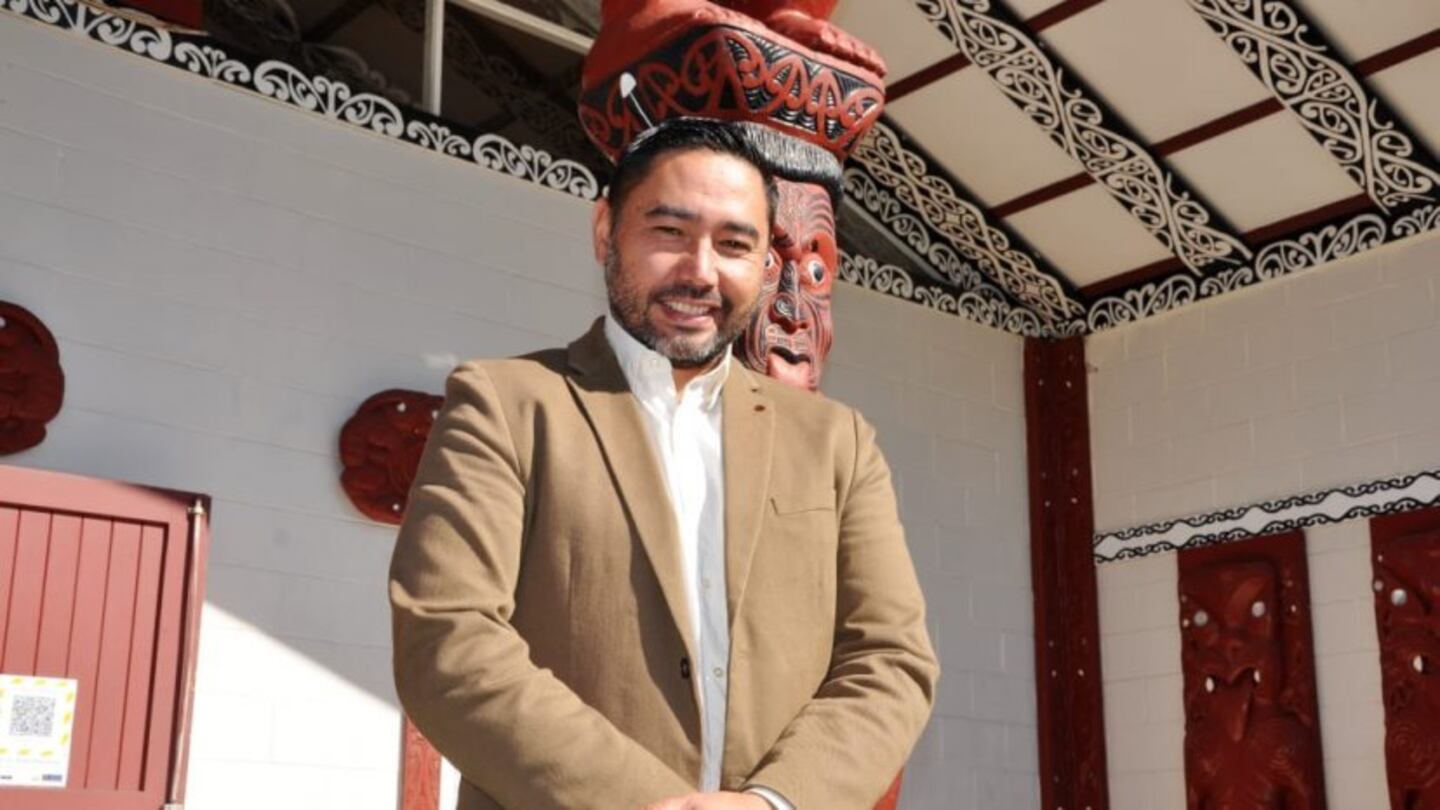'Give us the resources,' Te Matapihi's general manager Wayne Knox says. Photo: Sarah Sparks
Ashleigh McCaull
Māori housing advocates say Cyclone Gabrielle highlighted stark disparities between Māori and non-Māori communities.
The National Māori Housing Conference in Rotorua this week scrutinised the impact of disasters on housing inequality.
Māori housing advocate, Te Matapihi's general manager Wayne Knox, delivered a clear message to the government.
"Give us the resources and get out of the way," Knox said.
He told the conference that the system failed Māori during Cyclone Gabrielle, as whānau relied on iwi, hapū, marae and kāinga-led responses in the absence of Civil Defence and other authorities.
And he emphasised how richer communities were the first to be helped, rather than those living in rural areas.
"We watched as the mainstream response seemed to miss our kāinga altogether, along with the resources and, as affluent areas had services restored promptly while our kāinga were forgotten about, we were reminded just how racist the system can be."
Across the North Island almost 489 properties have been red-stickered, and can't be entered.
The focus is now on finding homes for these whānau.
"Focused on developing cabins for whānau to provide short-term accommodation but also thinking about, whilst we're doing this work, how can we make those solutions more appropriate for a medium to long term," Knox said.

Many hotels and motels in Rotorua have been used for emergency accommodation. Photo: LDR / Andrew Warner / Rotorua Daily Post
The conference host town, Rotorua, is no stranger to the housing crisis, with dozens of hotels and motels used as emergency accommodation since the Covid-19 pandemic began.
Lawyer and activist Annette Sykes, who created the Wai 2750 Waitangi Tribunal Claim into housing for Māori, said some Te Arawa trying to come home were forced into these facilities.
"When they were unable to afford the rent because everybody else's jobs were closed down, people in the hospitality industry for example, but they weren't the only ones, they came home.
"But they came home to a mean-spirited response from the people of Rotorua and I'm sad to say, led by many Māori leaders in this room," Sykes said.
She said those wanting to help homeless people during the pandemic were also shunned by the community.
The government introduced a four-year $730 million commitment to speed up Māori-led housing delivery in 2021, aiming to build more than 1000 new homes.
Housing Minister Megan Woods said there needed to be partnership between the Crown and Māori to help solve the housing crisis.
"It is critical. In fact it is the only way that we work together.
"Our Labour government will not resile from this despite the concerning race-baiting rhetoric that we are increasingly hearing from the opposition backbenchers when it comes to notions of partnership and working together."
She acknowledged there was no quick fix to a crisis that had been years in the making.
- RNZ

